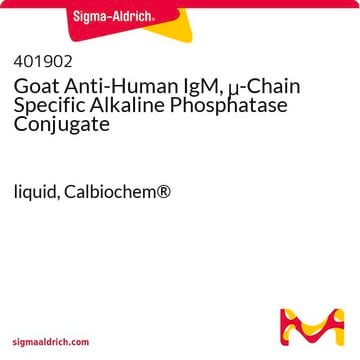719641
(4S)-2-[2-(diphenylphosphino)phenyl]-4,5-dihydro-5,5-dimethyl-4-(1-methylethyl)-oxazole
97%
Synonym(s):
(S)-2-(2-(Diphenylphosphino)phenyl)-4-isopropyl-5,5-dimethyl-4,5-dihydrooxazole, (S)-5,5-(Dimethyl)-i-Pr-PHOX
About This Item
Recommended Products
Assay
97%
form
solid
mp
124-128 °C
functional group
ether
phosphine
SMILES string
CC(C)[C@@H]1N=C(OC1(C)C)c2ccccc2P(c3ccccc3)c4ccccc4
InChI
1S/C26H28NOP/c1-19(2)24-26(3,4)28-25(27-24)22-17-11-12-18-23(22)29(20-13-7-5-8-14-20)21-15-9-6-10-16-21/h5-19,24H,1-4H3/t24-/m0/s1
InChI key
JGUZEKBWCGNHHN-DEOSSOPVSA-N
Related Categories
Application
Design, Synthesis, and Applications of Potential Substitutes of t-Bu-Phosphinooxazoline in Pd-Catalyzed Asymmetric Transformations and Their Use for the Improvement of the Enantioselectivity in the Pd-Catalyzed Allylation Reaction of Fluorinated Allyl Enol Carbonates
It can be used in:
- The enantioselective Pd-catalyzed allylation reactions.
- The synthesis of (R)-2-phenyl-2,5-dihydrofuran by the enantioselective Heck reaction between 2,3-dihydrofuran and phenyl triflate.
- The allylation reaction of fluorinated allyl enol carbonates and fluorinated silyl enol ethers to prepare allylated tert α-fluoroketones.
Signal Word
Danger
Hazard Statements
Precautionary Statements
Hazard Classifications
Acute Tox. 3 Oral - Aquatic Chronic 4 - Eye Irrit. 2 - Skin Irrit. 2 - STOT SE 3
Target Organs
Respiratory system
Storage Class Code
6.1C - Combustible acute toxic Cat.3 / toxic compounds or compounds which causing chronic effects
WGK
WGK 3
Flash Point(F)
Not applicable
Flash Point(C)
Not applicable
Choose from one of the most recent versions:
Certificates of Analysis (COA)
Don't see the Right Version?
If you require a particular version, you can look up a specific certificate by the Lot or Batch number.
Already Own This Product?
Find documentation for the products that you have recently purchased in the Document Library.
Customers Also Viewed
Related Content
Andreas Pfaltz has a longstanding interest in the design of chiral ligands for asymmetric catalysis. The semicorrins developed in his group served as the prototype for an important family of nitrogen ligands, the bisoxazolines, which have found widespread use in catalytic asymmetric synthesis.
Our team of scientists has experience in all areas of research including Life Science, Material Science, Chemical Synthesis, Chromatography, Analytical and many others.
Contact Technical Service![1,5-Cyclooctadiene{[dibenzyl((4S,5S)-5-methyl-2-phenyl-4,5-dihydro-4-oxazolyl)methyl]dicyclohexylphosphinite κN:κP}iridium(I) tetrakis(3,5-bis(trifluoromethyl)phenyl)borate 97%](/deepweb/assets/sigmaaldrich/product/structures/139/575/e2052bbf-fcaa-4d37-a53a-3cab3894162b/640/e2052bbf-fcaa-4d37-a53a-3cab3894162b.png)
![(S)-4-tert-Butyl-2-[2-(diphenylphosphino)phenyl]-2-oxazoline 97%](/deepweb/assets/sigmaaldrich/product/structures/305/738/18b6aec6-fcf7-4a6d-a8ac-134c41bee9d2/640/18b6aec6-fcf7-4a6d-a8ac-134c41bee9d2.png)
![(S)[(Sp)-2-(Diphenylphosphino)ferrocenyl]-4-isopropyloxazoline 97%](/deepweb/assets/sigmaaldrich/product/structures/265/471/6ec7300c-126b-4e22-9b5b-12634da58dbd/640/6ec7300c-126b-4e22-9b5b-12634da58dbd.png)
![(R)-(+)-2-[2-(Diphenylphosphino)phenyl]-4-isopropyl-2-oxazoline ≥97.0% (CHN)](/deepweb/assets/sigmaaldrich/product/structures/854/832/42ef7795-7199-4547-b48d-6fd210548e2d/640/42ef7795-7199-4547-b48d-6fd210548e2d.png)
![(S)-2-[2-[Bis(2-tolyl)phosphino]phenyl]-4-tert-butyl-2-oxazoline 97%](/deepweb/assets/sigmaaldrich/product/structures/274/207/8e737339-4062-47ee-b25f-d5e4cf210447/640/8e737339-4062-47ee-b25f-d5e4cf210447.png)


![Exo-2-Naphthyl Kwon [2.2.1] Bicyclic Phosphine](/deepweb/assets/sigmaaldrich/product/structures/324/907/a6c29ce5-9be1-4585-9bfb-6dca8272f6e4/640/a6c29ce5-9be1-4585-9bfb-6dca8272f6e4.png)
![1,5-Cyclooctadiene{[dibenzyl((4R,5R)-5-methyl-2-phenyl-4,5-dihydro-4-oxazolyl)methyl]dicyclohexylphosphinite κN:κP}iridium(I) tetrakis(3,5-bis(trifluoromethyl)phenyl)borate 97%](/deepweb/assets/sigmaaldrich/product/structures/109/838/8e9b273f-4ee4-4ff5-a3f7-cebe84a877bc/640/8e9b273f-4ee4-4ff5-a3f7-cebe84a877bc.png)


![(R)-1-[(SP)-2-(Dicyclohexylphosphino)ferrocenyl]ethyldi-tert-butylphosphine ≥97%](/deepweb/assets/sigmaaldrich/product/structures/809/974/e027b628-7c2e-4bde-be7e-f9298d0c8b04/640/e027b628-7c2e-4bde-be7e-f9298d0c8b04.png)
